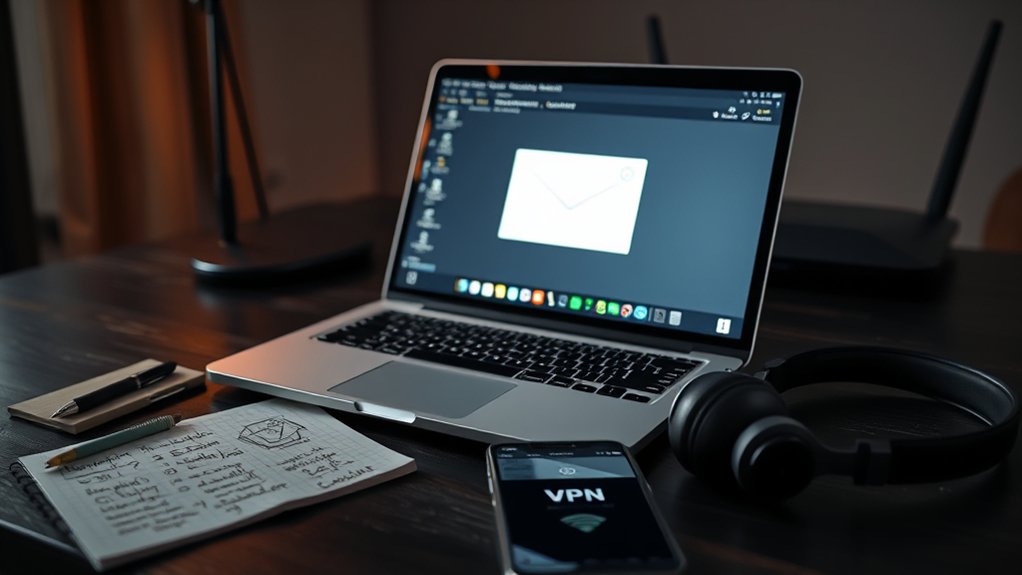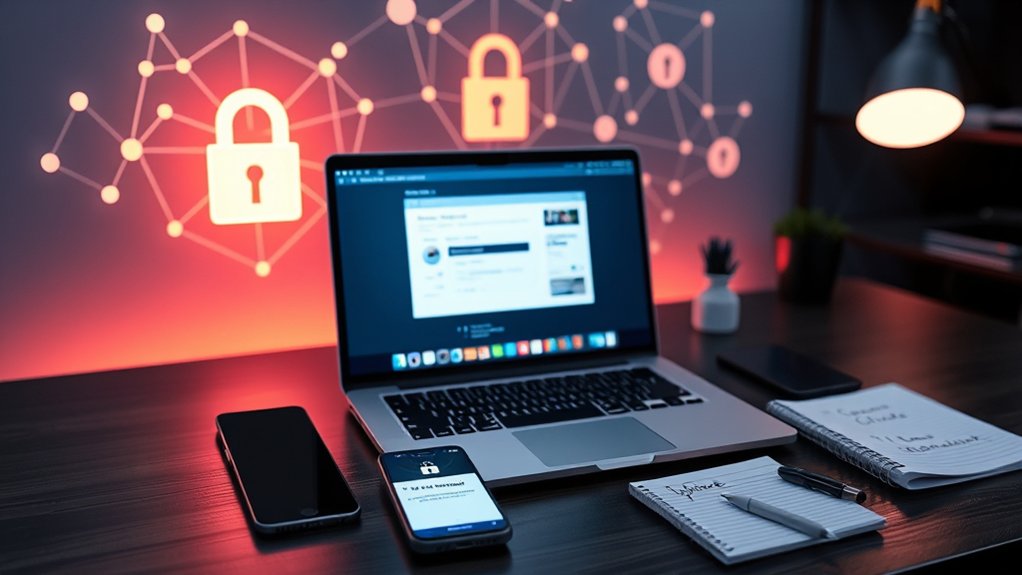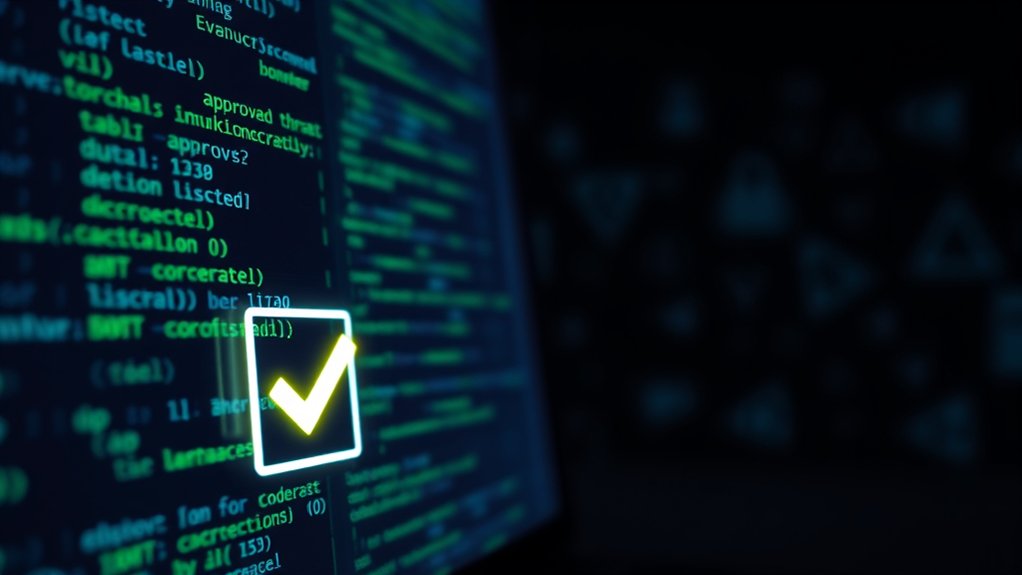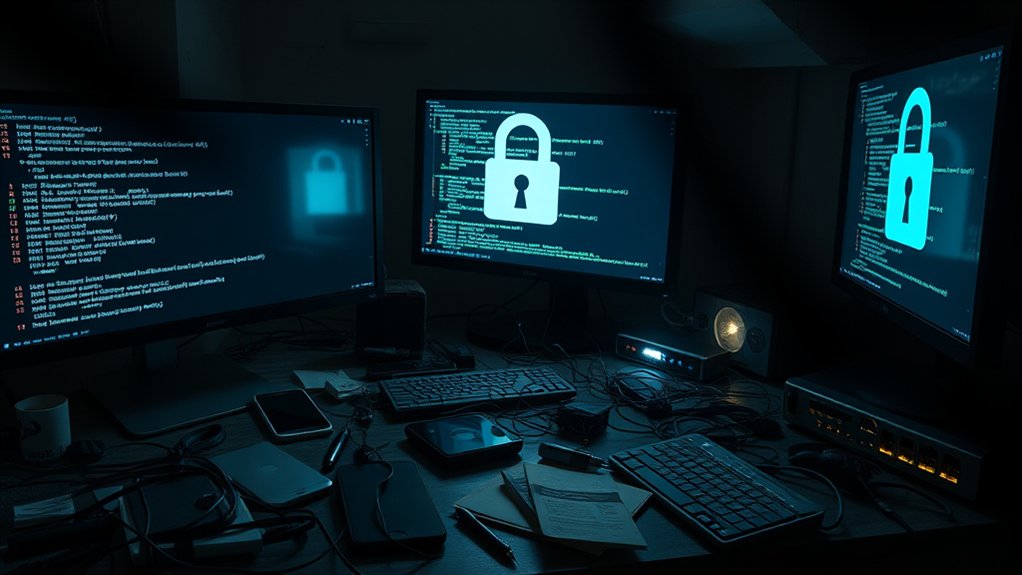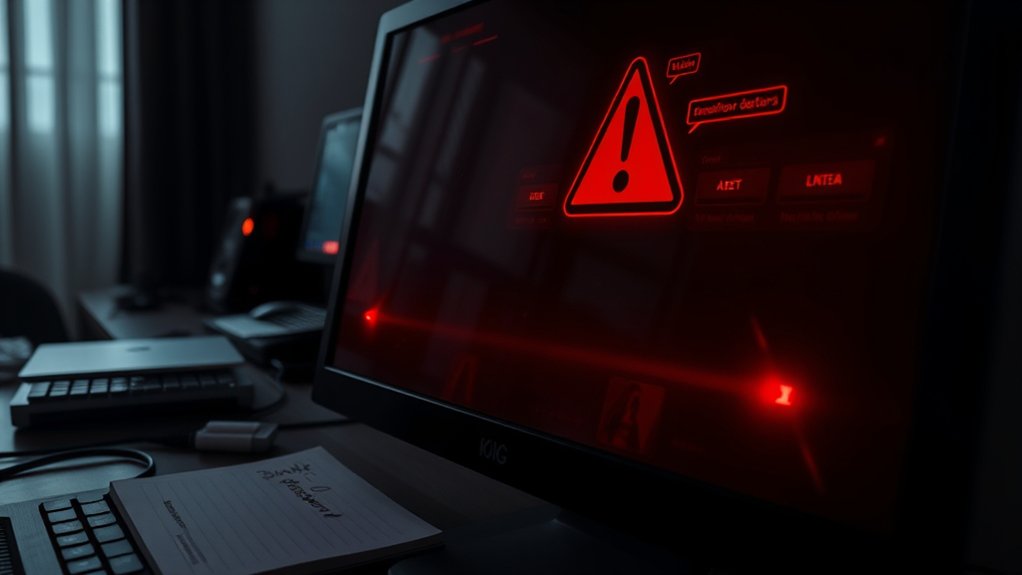To create an anonymous email safely and securely, one should choose a provider with strong privacy policies and minimal data requirements. For improved security, select services offering end-to-end encryption and features like hidden IP addresses and password-protected messages. Using a VPN or the Tor network can further obscure identity. Avoid linking personal recovery addresses and use unique usernames. Removing metadata before sending emails is vital. These practices guarantee greater anonymity, and further guidance can improve understanding.

Creating an anonymous email is a vital step for individuals seeking improved privacy in their digital communications. The choice of an email service provider is paramount, as privacy laws vary considerably between countries. Providers located in nations with strong privacy regulations, such as Switzerland, offer a safer environment for data protection. It is important to select services that provide end-to-end encryption, guaranteeing that the content of emails remains confidential and inaccessible to third parties. These services often include features like two-way email encryption, which enhances the security of communications between the sender and recipient. Additionally, using encrypted messaging applications can further protect sensitive information shared through emails.
Anonymity involves concealing the email address, IP address, device name, and metadata, which is crucial for maintaining a level of privacy during online communication. Jurisdiction plays a key role in determining data retention policies and compliance with privacy standards. Email services that adhere to a zero-knowledge policy, wherein the provider has no access to user data, further improve security. Prospective users should avoid providers that require personally identifiable information at signup, as this undermines the principle of anonymity.
Several features improve the security of anonymous emails. Two-way encryption safeguards communications between both sender and recipient, as hidden IP features mask the sender’s actual location. Password-protected messages limit access to authorized recipients, and automated message deletion minimizes the risk of exposure over time. Utilizing alias and masking services can further protect a user’s real identity.
To create an anonymous email effectively, users should select a service with minimal personal data requirements and choose a unique username unrelated to their identity. Strong passwords are necessary, and linking to a recovery email should be avoided to maintain anonymity. Verification of account setup is vital to confirm that all details are correct.
Utilizing tools for anonymity, such as Virtual Private Networks (VPNs) and the Tor network, can safeguard IP addresses during email communication. Disposable email services serve as alternate options for those needing temporary addresses. Nevertheless, common mistakes include using personal details in subject lines or attachments, which can compromise anonymity.
Moreover, sending emails without removing metadata could inadvertently reveal users’ identities.
Ultimately, although no email service guarantees complete anonymity, careful selection of providers and practices can greatly improve user privacy.
Frequently Asked Questions
Can Anonymous Emails Be Traced Back to Me?
Anonymous emails can potentially be traced back to individuals, depending on several factors. Techniques such as IP address analysis in email headers can provide revealing information.
Additionally, metadata in attachments may inadvertently disclose personal data, allowing skilled entities to trace origins.
Remarkably, even reputable services like ProtonMail may not guarantee complete anonymity if misused. Experts caution that although anonymity can be improved, no system is entirely foolproof, emphasizing the importance of mindful usage.
Are Free Anonymous Email Services Reliable?
Free anonymous email services often offer varying levels of reliability.
Services like ProtonMail and Tuta provide strong security features, including end-to-end encryption and strict privacy regulations. Nevertheless, limitations such as restricted storage and potential lack of advanced features should be considered.
Furthermore, temporary services like Guerilla Mail are useful for single-use scenarios but might not suit long-term needs. Understanding these factors can help users make informed choices about their anonymous email options.
How Do I Protect My Identity When Emailing?
To protect identity when emailing, individuals should employ privacy-focused services like ProtonMail or Tutanota. These platforms offer end-to-end encryption, ensuring email content remains unreadable by third parties.
Furthermore, using a virtual private network (VPN) can further obscure one’s IP address, with services like NordVPN recognized for their strong privacy policies.
In addition, avoiding personal identifiers in email content greatly reduces the risk of exposure, according to cybersecurity experts. As a result, a multi-faceted approach is crucial.
Is It Legal to Send Anonymous Emails?
Sending anonymous emails is usually legal across most jurisdictions, provided the sender adheres to applicable laws, such as the CAN-SPAM Act in the United States.
Violations, such as spamming or using misleading headers, can incur substantial penalties. Internationally, regulations like the GDPR impose severe fines for privacy infringements.
Although anonymity can facilitate whistleblowing and protect freedom of expression, it may likewise allow unethical practices, highlighting the dual-edged nature of such communication.
Can I Use an Anonymous Email for Online Registrations?
Anonymous emails can serve as a practical tool for online registrations. They allow individuals to maintain privacy and minimize the risk of spam.
Services like ProtonMail and Tutanota prioritize user anonymity by requiring minimal personal information, whereas temporary solutions such as Guerilla Mail offer one-time use options.
Nevertheless, it is essential to take into account limitations; disposable emails may not support long-term account management and users must remain vigilant regarding data security practices.
